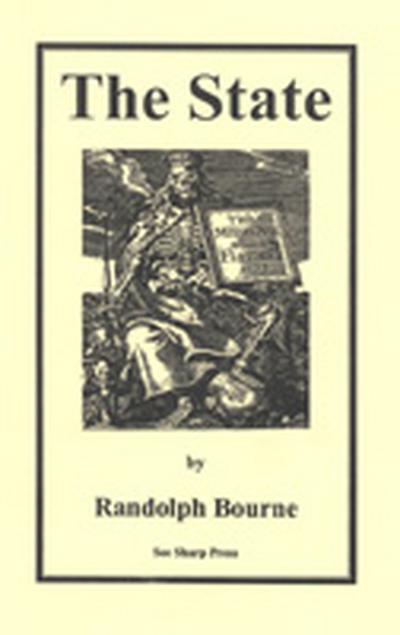War Is the Health of the State
 I heard a news story on the radio this morning about another two soldiers killed in Afghanistan. Driving through Oakland, I had one of those moments when the horror of daily life envelops you, like a ray of anti-sunlight through the clouds of “normal” numbness. At least 20,000 corpses in Afghanistan (most of them, of course, civilians). Another 50,000 (again at least) seriously injured. An aerial drone strike in June that efficiently took out thirty-five villagers at a funeral, including ten children. And good cop Obama, the Commander-in-Chief of “hope” and “change,” ratcheting up the slaughter as he talks sweet about health care.
I heard a news story on the radio this morning about another two soldiers killed in Afghanistan. Driving through Oakland, I had one of those moments when the horror of daily life envelops you, like a ray of anti-sunlight through the clouds of “normal” numbness. At least 20,000 corpses in Afghanistan (most of them, of course, civilians). Another 50,000 (again at least) seriously injured. An aerial drone strike in June that efficiently took out thirty-five villagers at a funeral, including ten children. And good cop Obama, the Commander-in-Chief of “hope” and “change,” ratcheting up the slaughter as he talks sweet about health care.
It all made me think of Randolph Bourne’s “War Is the Health of the State,” which I went back and read recently while preparing Barry Sander’s The Green Zone for publication. Written in 1918 as part of a larger work, The State (unfinished at the time of his death), it still strikes me as one of the best attempts to get at the root causes of militarism.
Below is an excerpt. When reading it, you should keep in mind that, in Bourne’s usage, “nation” is more or less synonymous with “the people,” “State” is a quasi-Weberian political entity claiming a monopoly on the legitimate use of violence within and beyond its borders, and “government” is the specific administrative apparatus of any given State.
If you want to read the entire text online, you can go here. For the same thing in ink-on-paper pamphlet form, go here.
****
War is a function of [the] system of States, and could not occur except in such a system. Nations organized for internal administration, nations organized as a federation of free communities, nations organized in any way except that of a political centralization of a dynasty, or the reformed descendant of a dynasty, could not possibly make war upon each other. They would not only have no motive for conflict, but they would be unable to muster the concentrated force to make war effective. There might be all sorts of amateur marauding, there might be guerrilla expeditions of group against group, but there could not be that terrible war en masse of the national State, that exploitation of the nation in the interests of the State, that abuse of the national life and resource in the frenzied mutual suicide, which is modern war.
It cannot be too firmly realized that war is a function of States and not of nations, indeed that it is the chief function of States. War is a very artificial thing. It is not the naïve spontaneous outburst of herd pugnacity; it is no more primary than is formal religion. War cannot exist without a military establishment, and a military establishment cannot exist without a State organization. War has an immemorial tradition and heredity only because the State has a long tradition and heredity. But they are inseparably and functionally joined. We cannot crusade against war without crusading implicitly against the State. And we cannot expect, or take measures to ensure, that this war is a war to end war, unless at the same time we take measures to end the State in its traditional form. The State is not the nation, and the State can be modified and even abolished in its present form, without harming the nation. On the contrary, with the passing of the dominance of the State, the genuine life-enhancing forces of the nation will be liberated. If the State’s chief function is war, then the State must suck out of the nation a large part of its energy for its purely sterile purposes of defense and aggression. It devotes to waste or to actual destruction as much as it can of the vitality of the nation. No one will deny that war is a vast complex of life-destroying and life-crippling forces. If the State’s chief function is war, then it is chiefly concerned with coordinating and developing the powers and techniques which make for destruction. And this means not only the actual and potential destruction of the enemy, but of the nation at home as well. For the very existence of a State in a system of States means that the nation lies always under a risk of war and invasion, and the calling away of energy into military pursuits means a crippling of the productive and life-enhancing processes of the national life.
